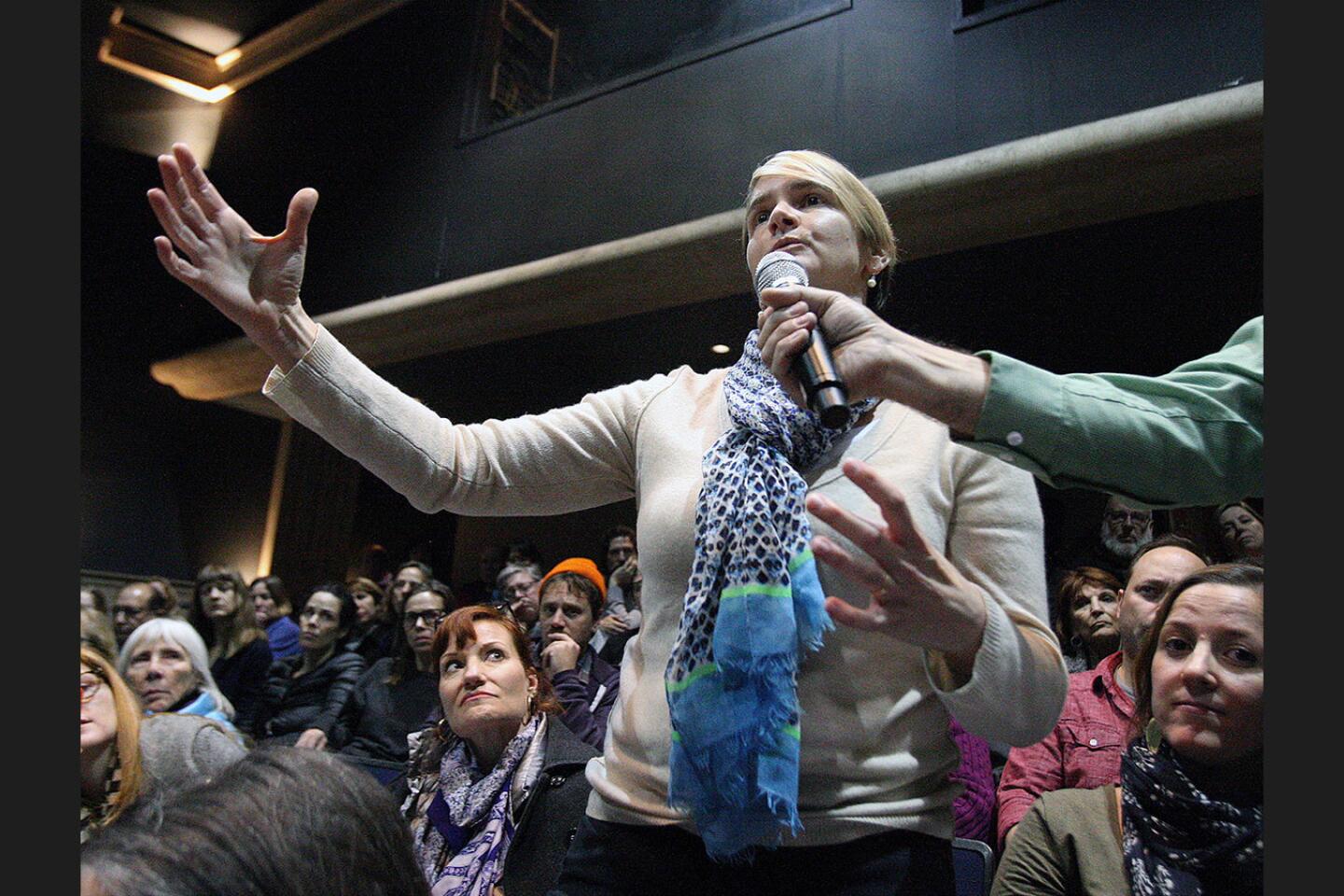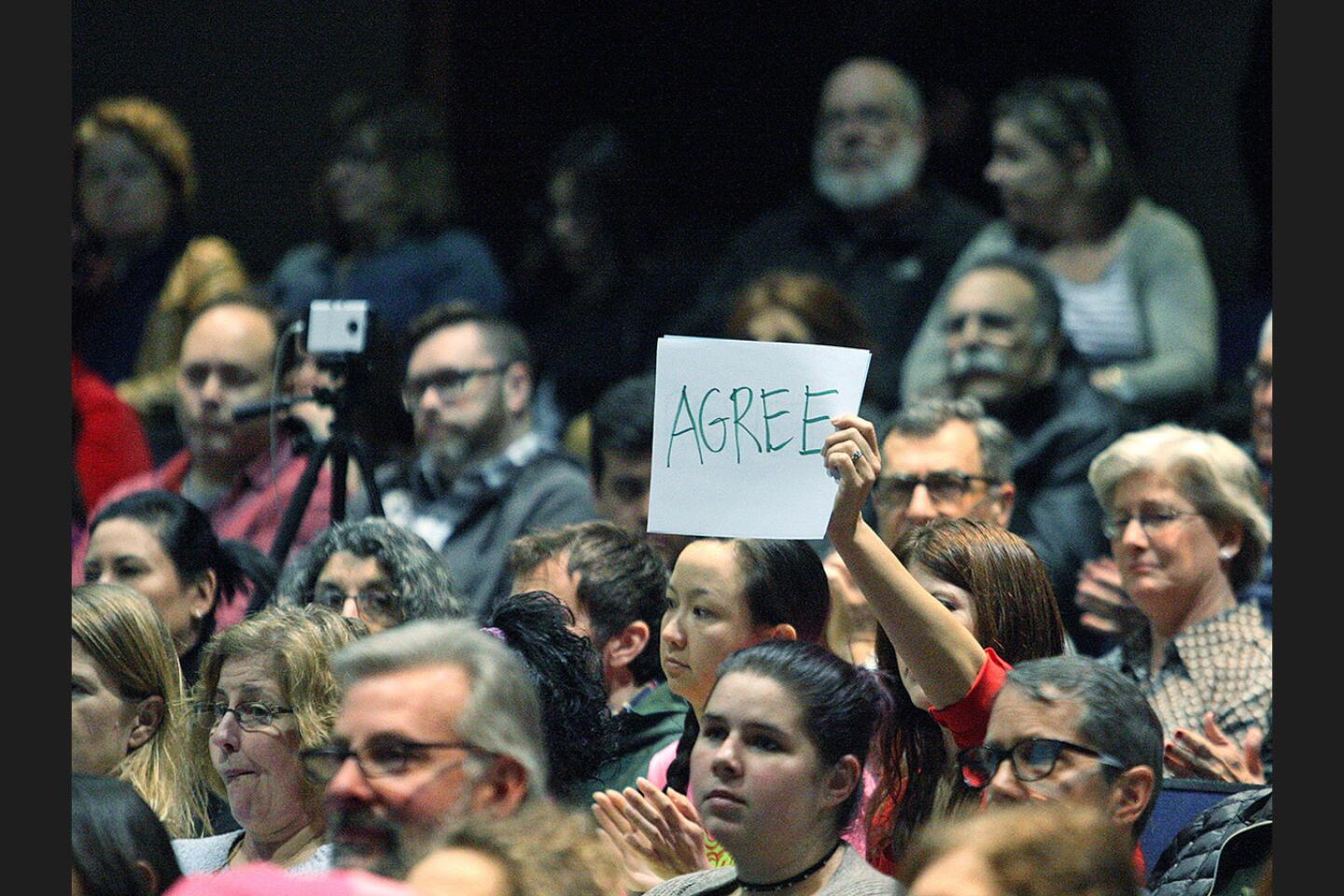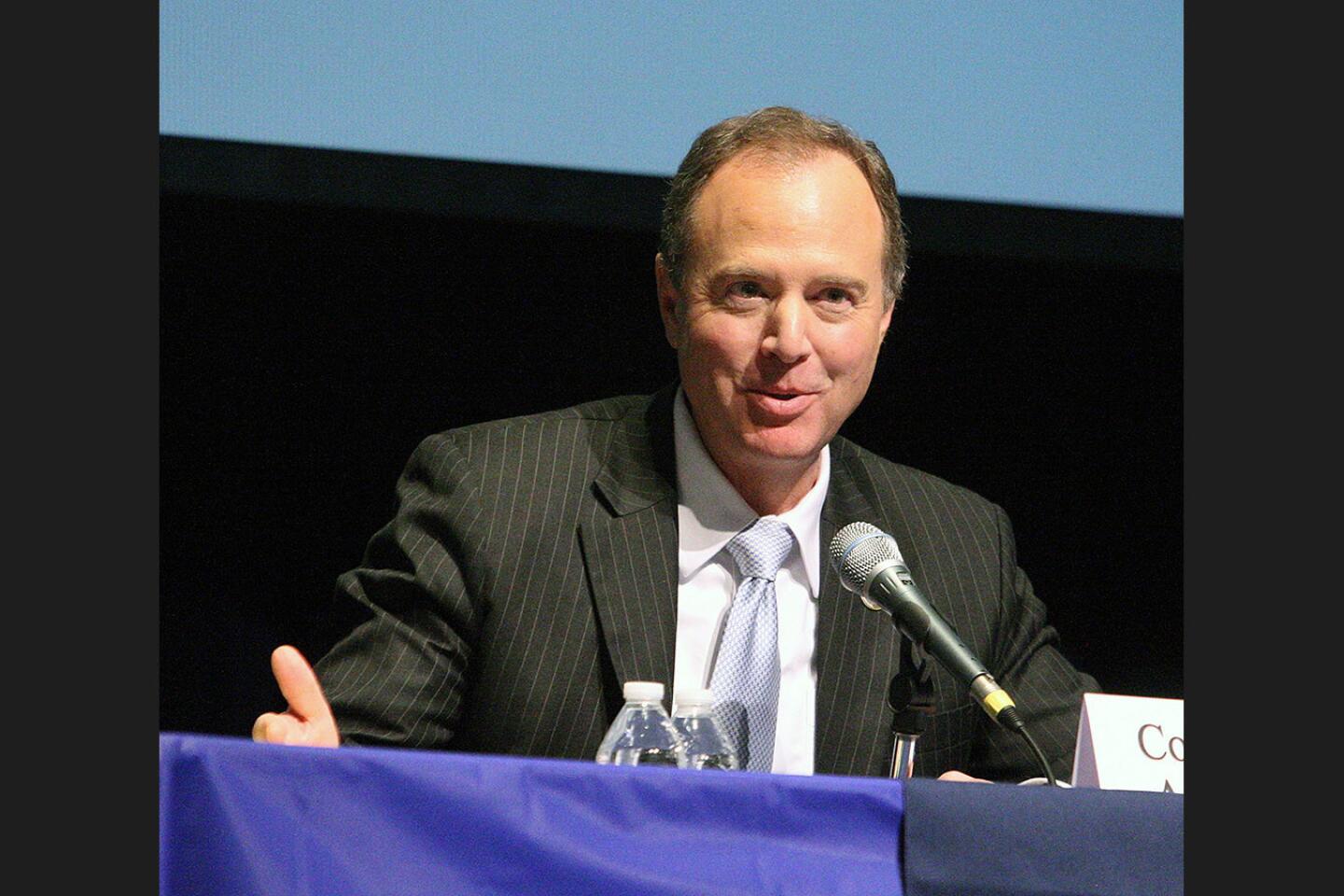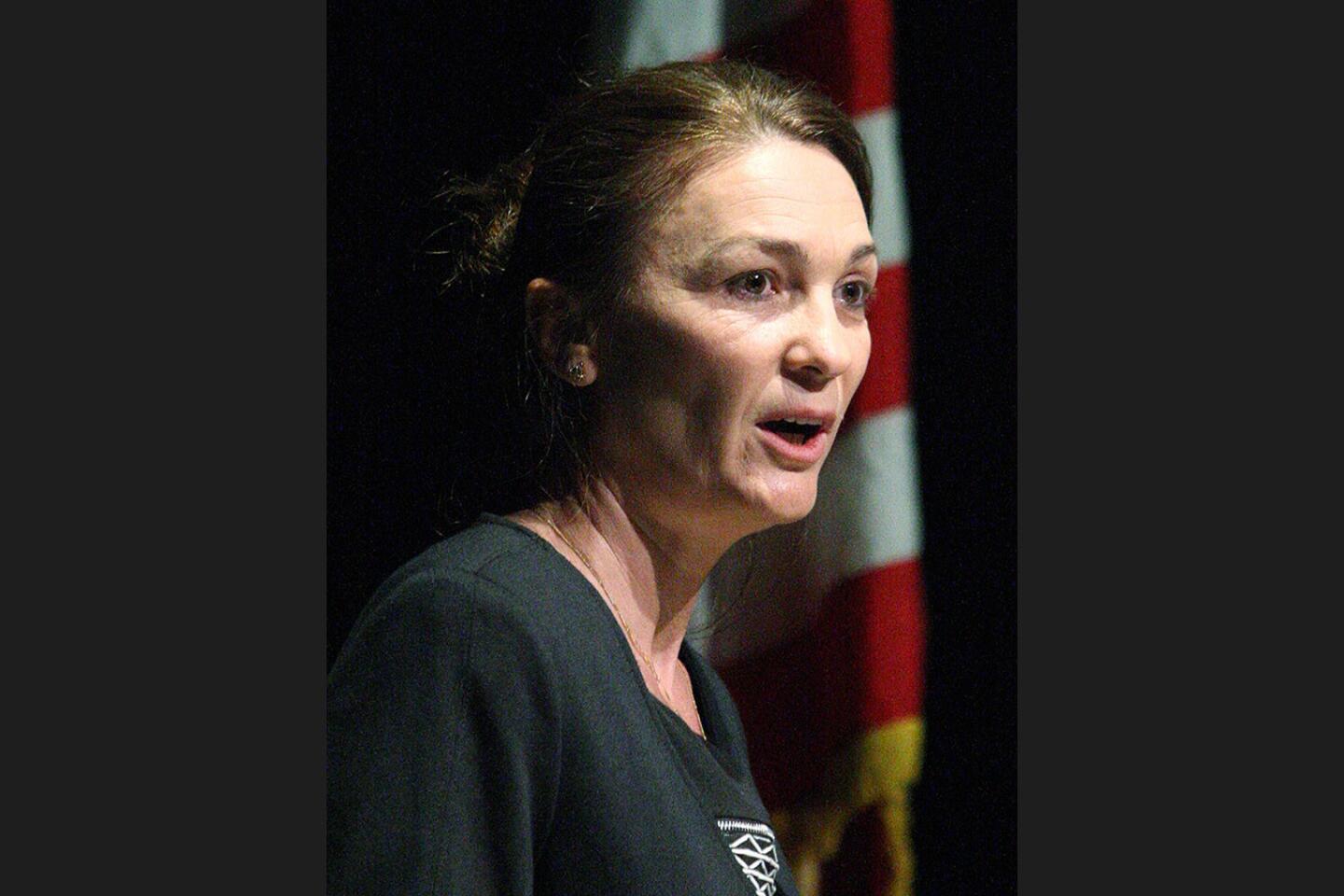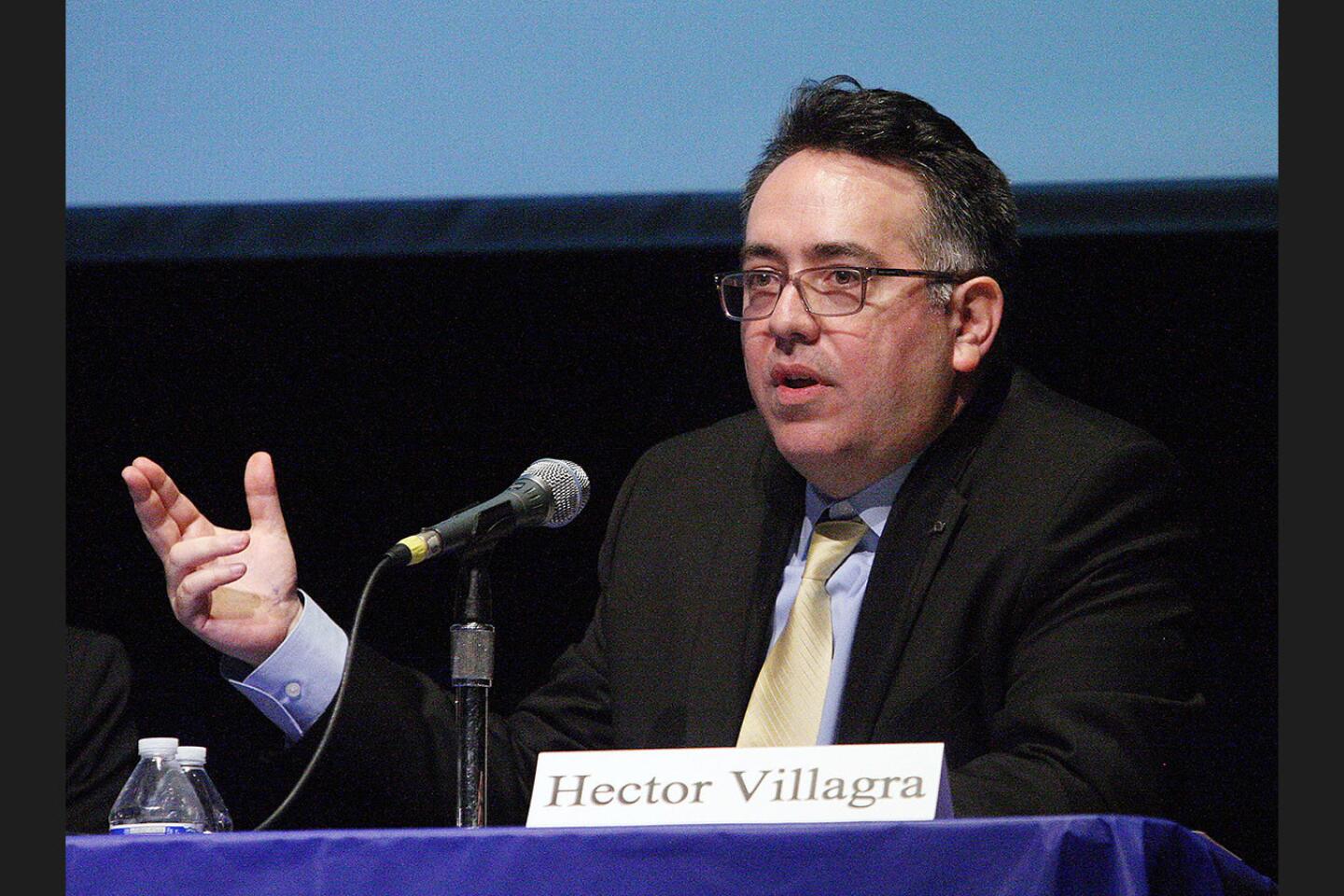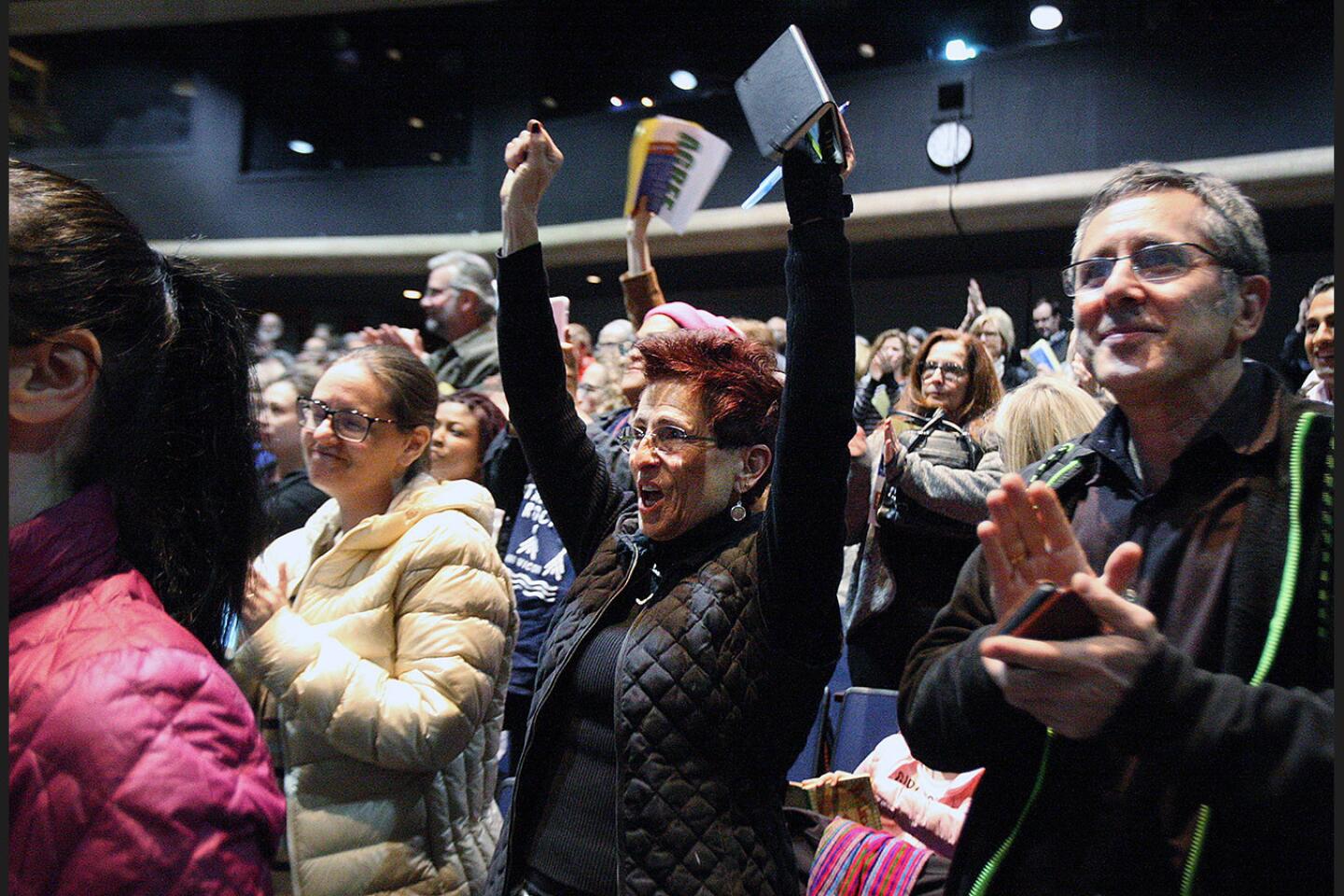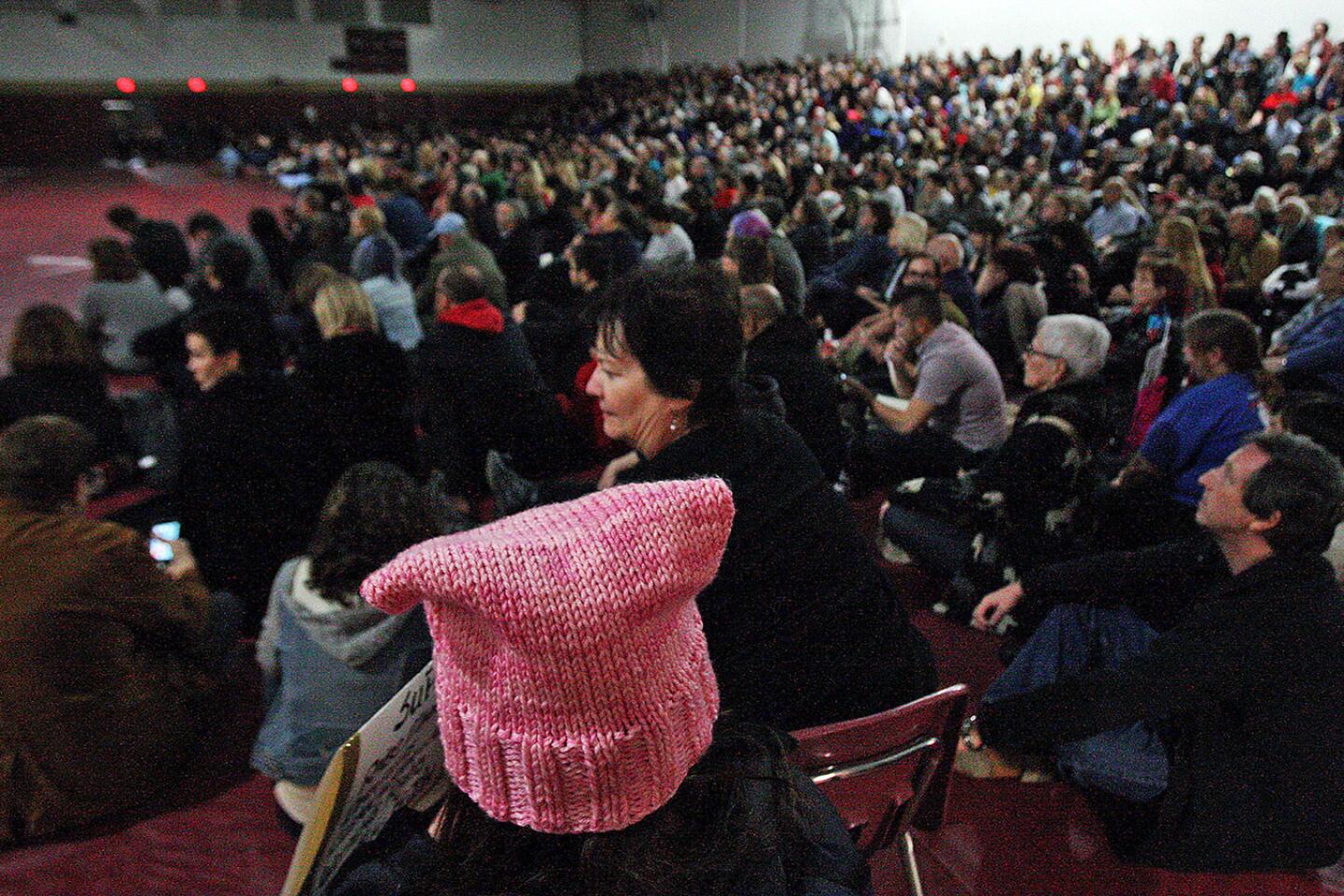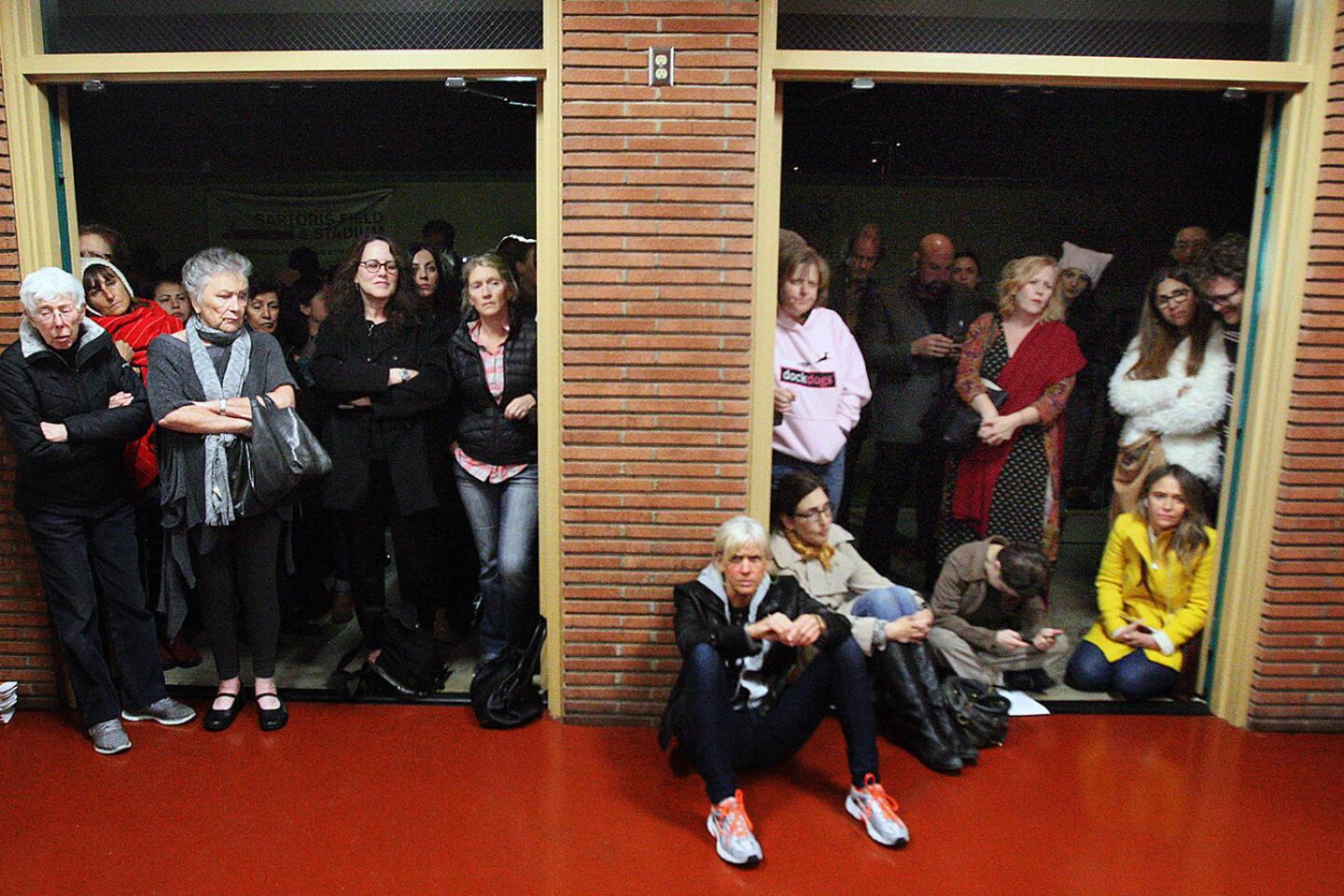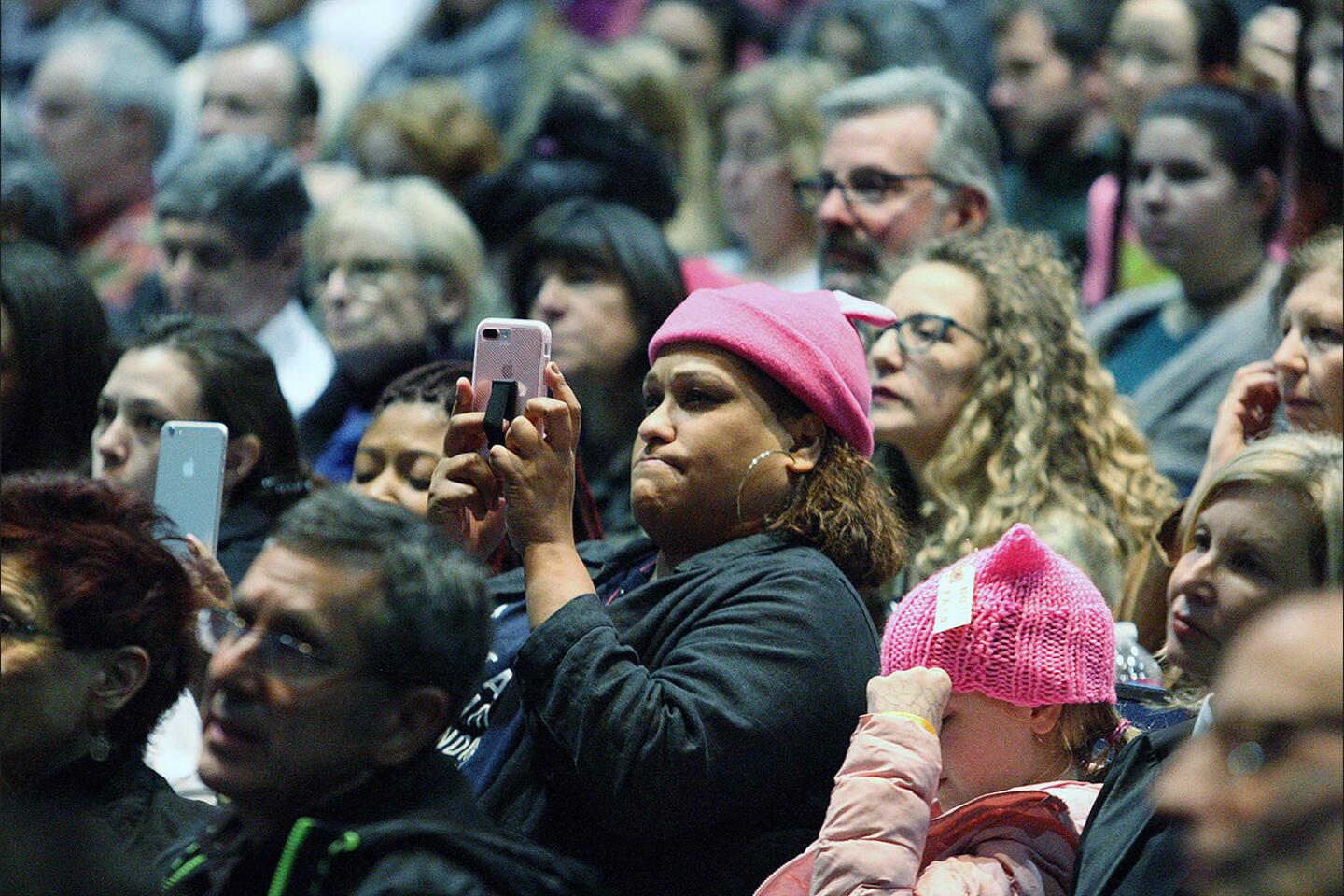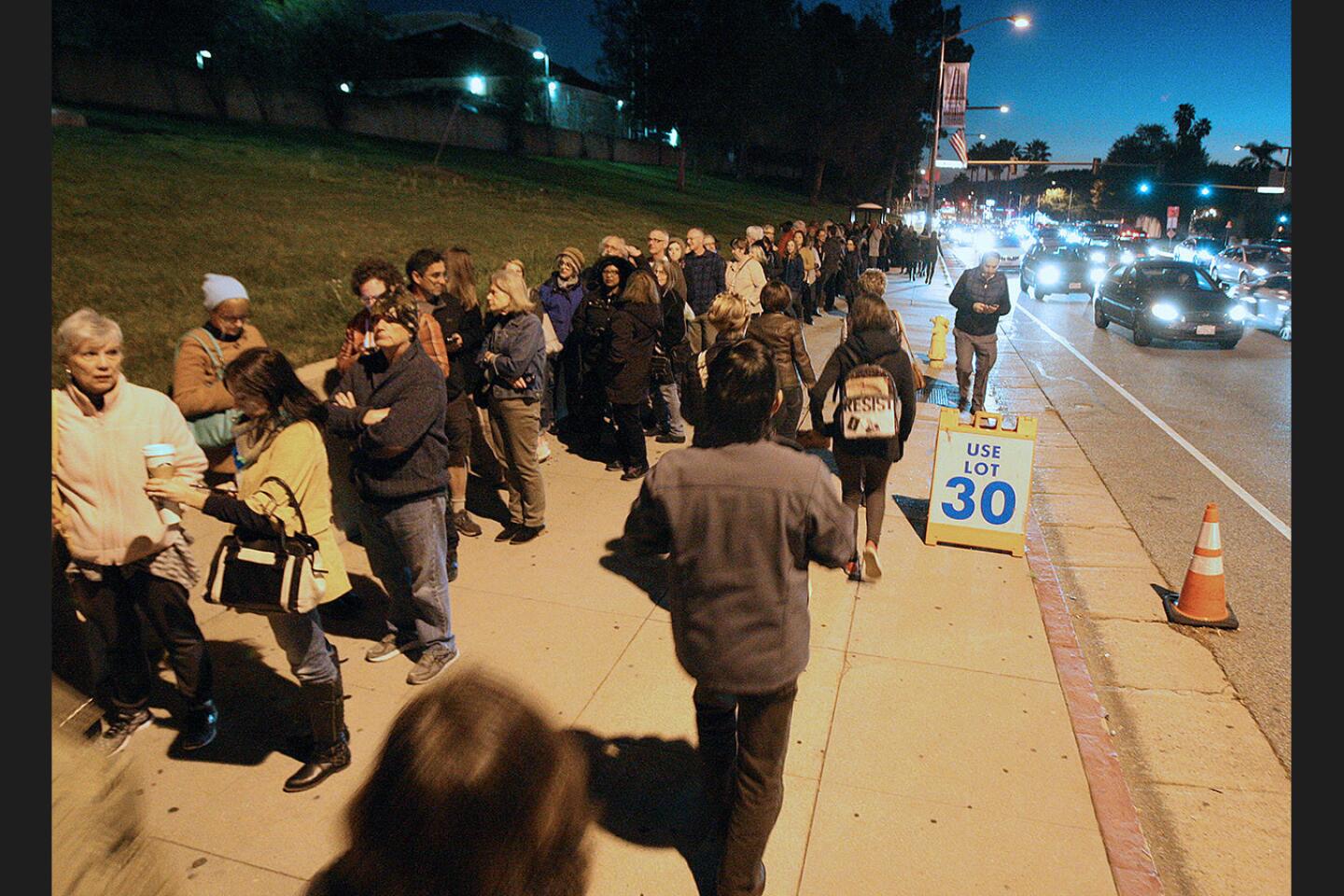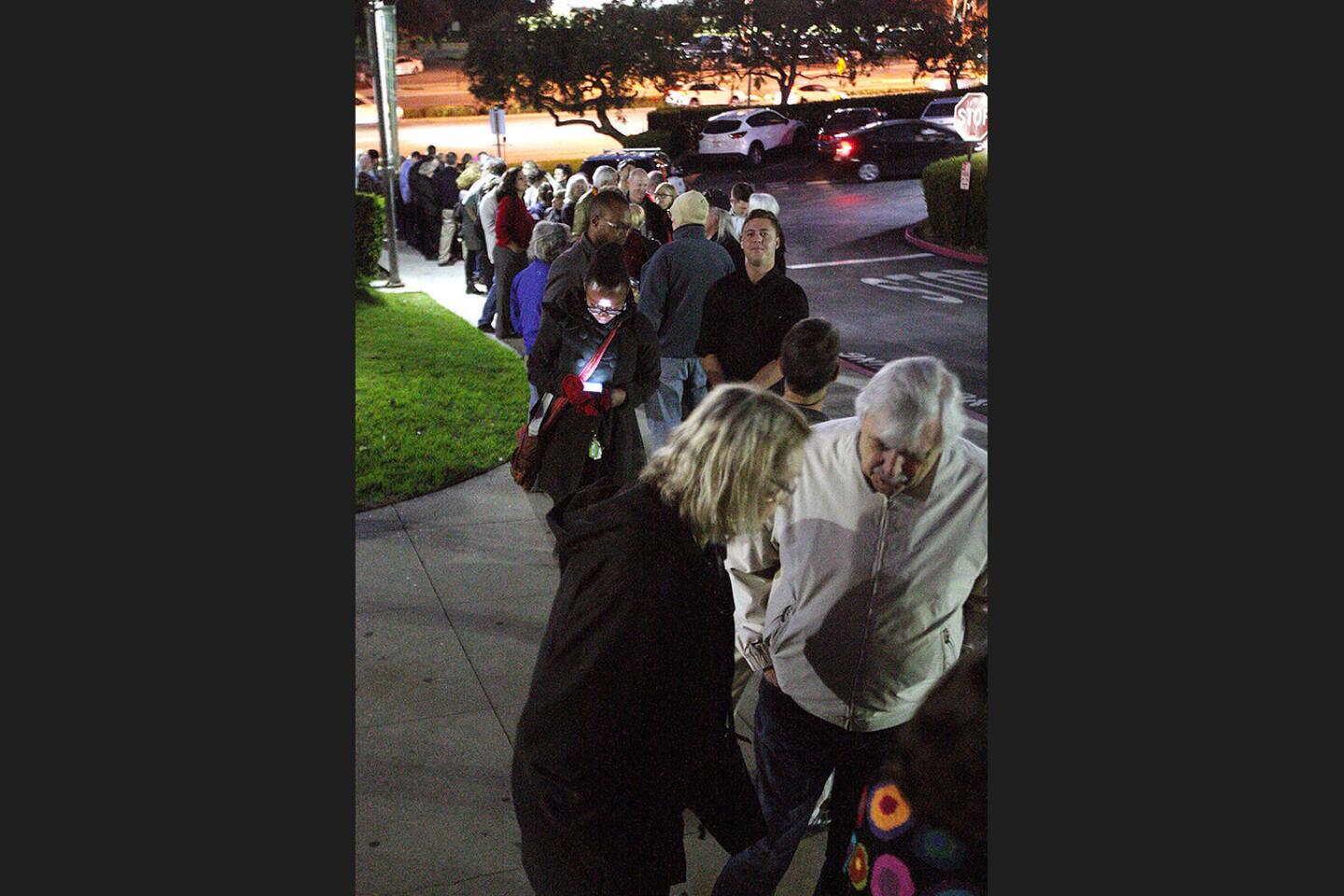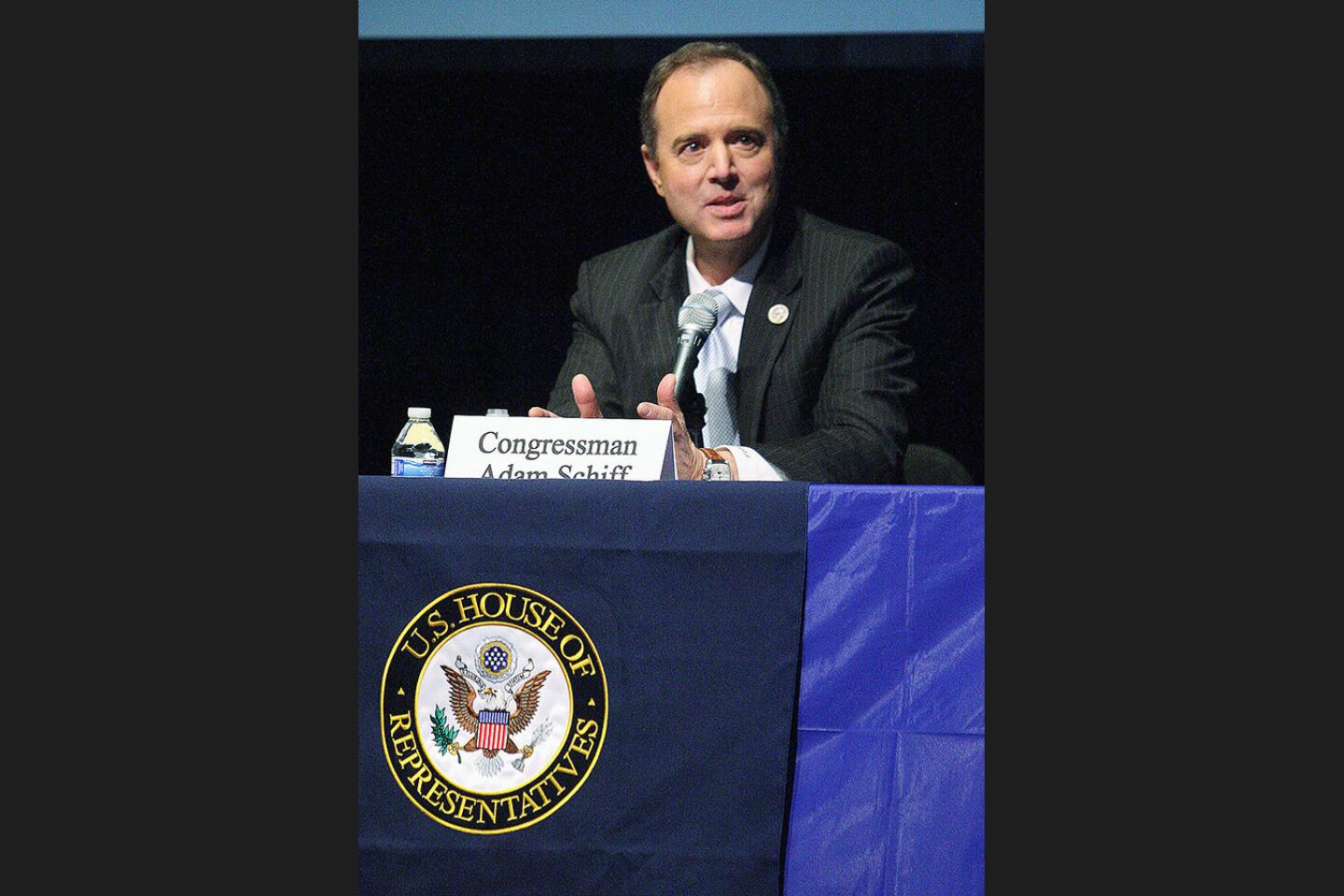Schiff on Trump’s immigration executive order: ‘It is wrong-headed, it is unconstitutional’
The auditorium and gymnasium at Glendale Community College were packed Friday evening as an estimated 1,200 people flocked to the campus to ask Rep. Adam Schiff (D-Burbank) and a panel of experts about the future of the U.S. Refugee Admissions Program and what President Donald Trump’s actions may be in the weeks to come.
The audience, comprised of people living within and outside Schiff’s 28th Congressional District, were concerned about what Trump will do after issuing his Jan. 27 executive order, which attempted to block travelers from seven Muslim-majority countries from entering the United States for at least 90 days, impose a 120-day ban on refugees from any country and prohibit Syrian refugees indefinitely.
On Feb. 9, the 9th Circuit Court of Appeals ruled against Trump’s order, which prevented the travel ban from taking effect.
Join the conversation on Facebook >>
“It’s an effort to exclude people on the basis of their faith,” Schiff said about the president’s order. “It is wrong-headed, it is unconstitutional and for a nation that was founded by people who came here seeking religious liberty is deeply antithetical to what the whole country is about.”
Schiff, a ranking member of the House Intelligence Committee, said he was impressed with the turnout, as roughly 400 people sat in the college’s auditorium, while about 800 were inside a nearby gym that had a live feed of the town hall meeting.
“I don’t care what Sean Spicer says,” Schiff said. “Somehow, I don’t think this is some George Soros-led conspiracy. It seems pretty darn organic to me.”
Joining Schiff on stage were Martin Zogg, executive director of the International Rescue Committee of Los Angeles; Seema Ahmad, chair of the board of directors of the Muslim Public Affairs Council; Etleva Bejko, director of refugee and immigration services for the Jewish Family Service of San Diego; and Hector Villagra, executive director of the American Civil Liberties Union of Southern California.
Zogg said the International Rescue Committee has been helping resettle refugees in Southern California for more than 40 years and is one of eight refugee resettlement agencies in the region.
“Everyone in this room and in this country got a jolt three weeks ago,” said Zogg, explaining that he and the committee did not know if they could continue assisting refugees. “But we have resumed resettling refugees this month. In fact, it’s been one of the busiest months of the year for us.”
Ahmad, a Los Angeles public defender, said that it has not been an easy three weeks for her and those in the Muslim community.
“My community has gone through a lot,” she said. “A lot of psychological trauma and difficulty, and I want to tell each of you that your presence here, your presence at LAX, your presence at the Women’s March is a healing presence for all members of the American Muslim community and it means a lot.”
Ahmad said she thinks that Trump is relying heavily on his authority as president to pursue his policy changes as well as fear and assuming his constituency’s lack of knowledge about refugees and the Muslim community to accomplish what he wants.
“One of the things that our president at [the Muslim Public Affairs Council] says is a lot of people are talking about American Muslims and not necessarily talking to or hearing from American Muslims,” she said.
Bejko said there is a large Iranian community in the northern region of San Diego County. From 2007 to 2014, the county was the largest resettlement community for refugees in the state.
Additionally, San Diego resettled 788 Syrian refugees during the last federal fiscal year, which Bejko said was more than any other site in the United States.
“The process that refugees go through is so complex,” she said. “They go through so many layers of background checks that it begs the question of why is it that every time we talk about security, refugees pop up?”
Villagra, whose father was an immigrant and mother was a refugee, said that he took it personally when Trump signed the order. Though the order has been stymied for now, Villagra told the audience that he expects the president to come back with another order.
His and several other ACLU chapters sued Trump after he sign the travel ban and vowed that they will continue to take legal action if and when he passes a new executive order.
“As many bans as he tries to pass, we’re going to see him in court every time,” Villagra said.
The panel fielded several questions from the audience, including one from a woman who asked about what people like her can do to help refugees.
Donating money and volunteering for various resettlement agencies goes a long way, Zogg said, adding that it is up to the state and local agencies to help fund resettlement activities.
Bejko said community events, such as a recent potluck that the Jewish Family Service hosted, can help build a bridge between people.
People need to continue pressuring their representatives and be proactive, according to Villagra.
Ahmad pointed out that the public needs to be aware of any other executive orders coming down the pipeline, such as a possible order that would declare the Muslim Brotherhood — a religious and political social network founded in 1928 in Egypt — as a foreign terrorist organization.
Schiff said there is plenty his constituents and others can do, adding that inaction will not solve anything.
“The worst thing to do, frankly, is to stew about it at home and feel completely powerless to do anything about it,” he said.
--
Anthony Clark Carpio, anthonyclark.carpio@latimes.com
Twitter: @acocarpio
